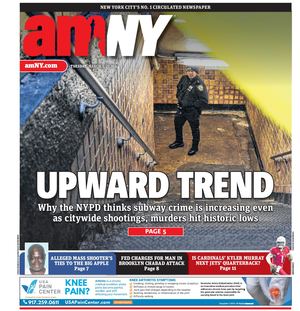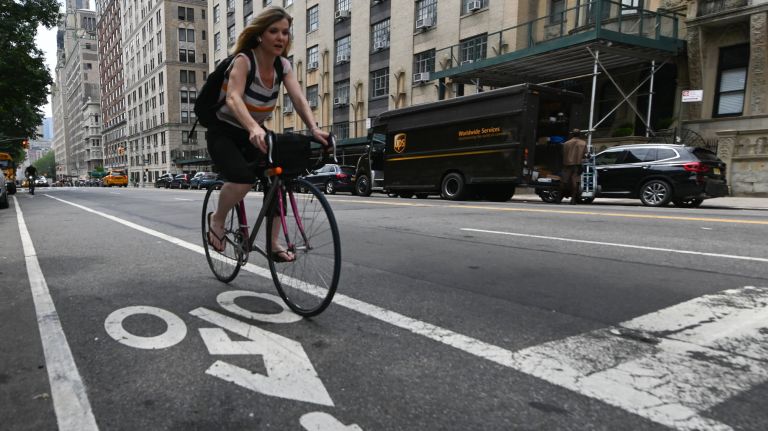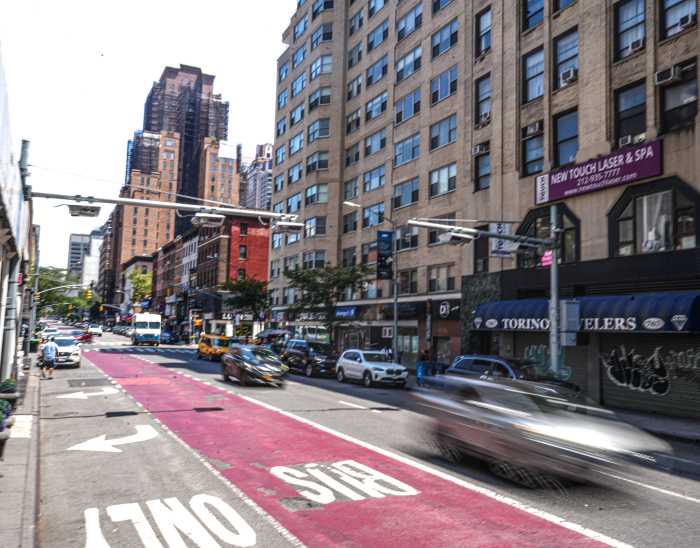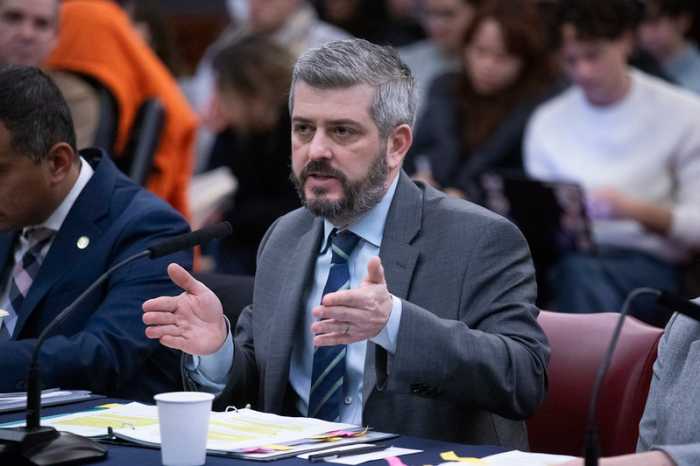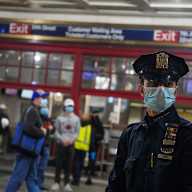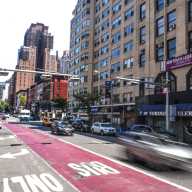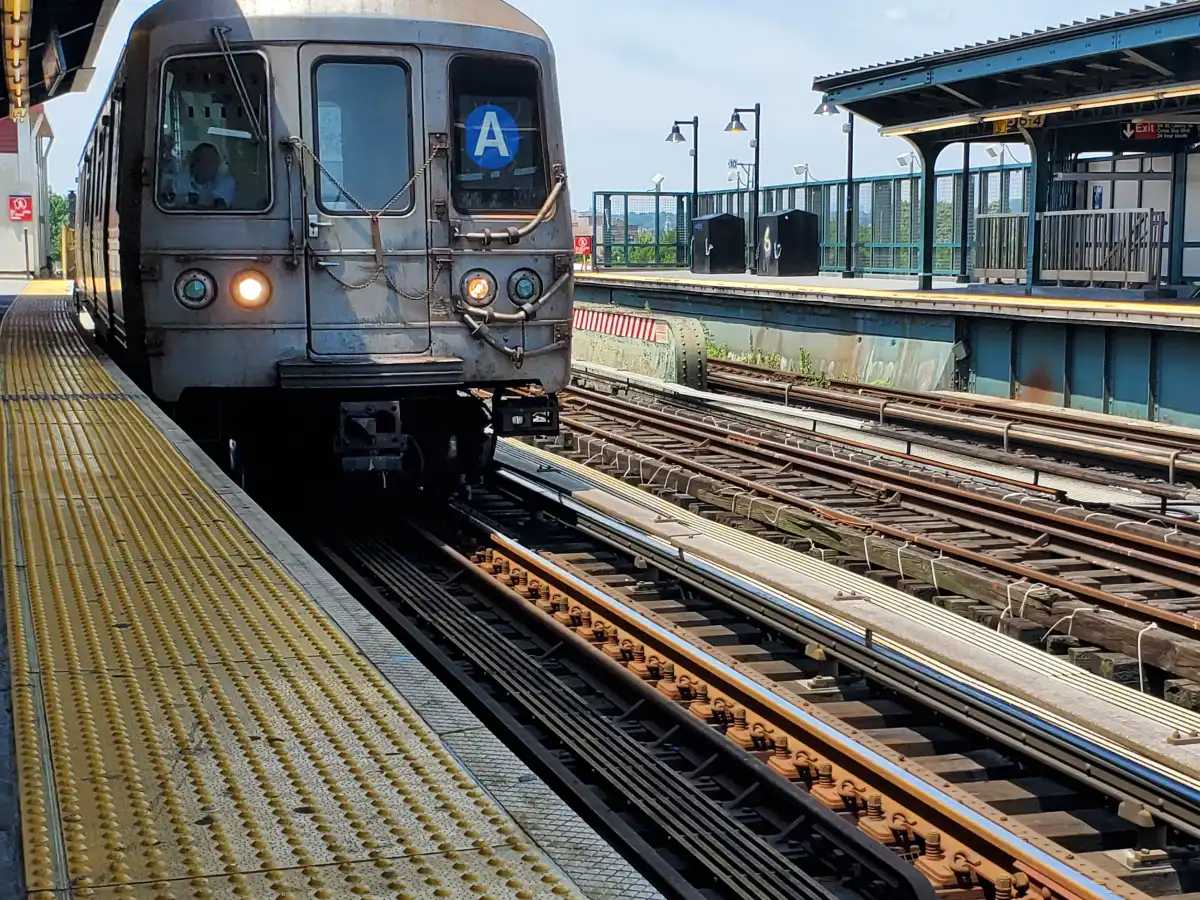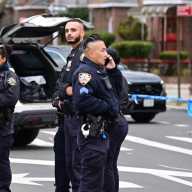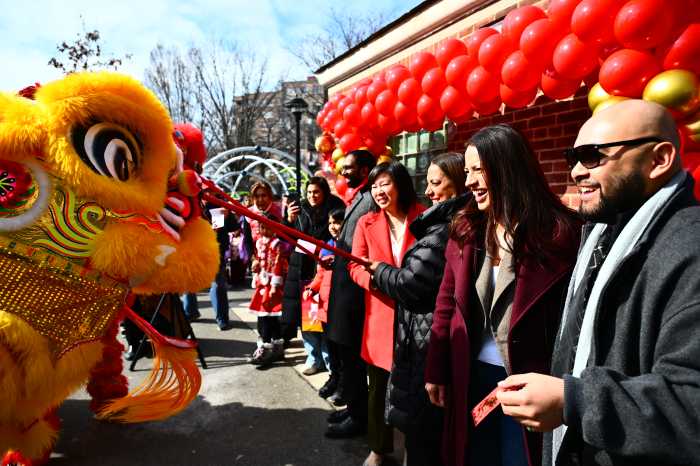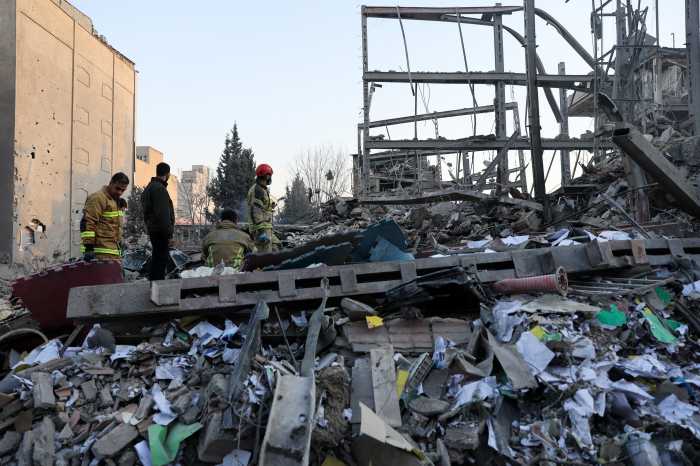
With cyclist deaths rising on city streets, a renewed push for a protected Long Island City bike lane and a court battle over one planned for Central Park West on Wednesday highlighted the continuing challenges in reforming the streetscape to push back against the tragic trend.
A New York State Supreme Court judge on Wednesday ruled against opponents looking to block a protected bike lane proposed along Central Park West — marking a key victory, but signaling a rough road ahead for the city as it looks to more aggressively expand its bike network in response to an uptick in cyclist deaths this year.
The decision, which came in response to a lawsuit filed by a condo board late Tuesday, means the city can carry out its plans for a buffered, curbside bike lane stretching the entire length of the park. City crews were out striping the bike lane as the decision came down.
The project would enhance the current bike lane which has no divider or any other physical barrier that separates bike riders from vehicular traffic.

“We are grateful for the judge’s decision today that will allow us to move forward with a design that will transform Central Park West this summer, and make our streets safer for everyone,” DOT Commissioner Polly Trottenberg said in a statement. “With so many lives being lost this year on our roadways, and with the broad support of the community, we are confident that we will ultimately prevail in our efforts to build this much-needed protected bike lane.”
The local community board had called for, and subsequently approved, the bike lane in response to the death of 23-year-old Madison Lyden last summer, who was killed when she was forced to travel outside of a blocked bike lane. But the condo board of 25 Central Park West, known as the Century Condominium, argued that such design changes should be subject to environmental review under city and state law. In their lawsuit, the plaintiffs rued the city’s "Green Wave" plan to build 30 miles of protected bike lanes each year, a push that “has stripped the city of prime real estate on stately corridors like Columbus Avenue.”
“This was done without any analysis,” said attorney Richard Leland, representing the board, in court Wednesday.
The plaintiffs also argued that the city’s push to add more bike lanes caters to a “tiny minority of citizens” while actually contributing to the rise in bicycle accidents. City data, however, has shown that protected bike lanes make a street safer for all users — bicyclists, pedestrians and drivers.
Judge Lynn Kotle questioned how the Central Park West bike lane was different from any other throughout the city and reasoned that there was no immediate harm warranting a temporary restraining order to halt the lane’s installation. She said the community board approval process gave ample opportunity for feedback.

“This was approved by your own community board,” Kotle said. “That was a perfect place for residents to voice their objection.”
The suit closely resembled others filed in recent years, where residents in tony neighborhood groups have used litigation to try and foil city efforts to create more space for bike and bus lanes — most notably Chelsea’s fight against the city’s 14th Street busway and Park Slope’s failed war on the Prospect Park West bike lanes. A successful stoppage of work on Central Park West would have inspired more copycats, some feared.
“If any credibility was given to this suit it could have been devastating. Bike lanes should be part of the authority localities have to protect the welfare of residents," said Marco Conner, co-deputy director at Transportation Alternatives.
Eighteen cyclists have died so far this year, already eight more fatalities than occurred in all of 2018. With more than 1,200 miles of bike lanes across the city’s 6,000 miles of streets, cyclists say there are still too many unsafe gaps in cycling infrastructure.
As city lawyers prepared for court Wednesday morning, advocates in Queens pushed Mayor Bill de Blasio’s administration to do more to improve cycling in the borough. Transportation Alternatives and Bike New York released a vision for a “bike neighborhood” in Long Island City, proposing roughly five miles of new protected bike lanes to finish the greenway along Center Boulevard and better connect riders to cultural centers and bridges.
The idea would bring parking-separated lanes to corridors like 23rd Street, 44th Drive, Jackson Avenue and 48th Avenue, among others to make sure residents are never far from a safe lane to ride.
“We need a network because nobody should be more than a couple of blocks from a protected bike lane,” said Laura Shepard of Bike New York, at a news conference near the foot of the Pulaski Bridge. “They need to be useful and ubiquitous. You shouldn’t have to detour and go out of the way.”
Queens Councilman Jimmy Van Bramer, who represents the area, endorsed the proposal and called out the lawsuit against the Central Park West lane as an obvious “delay tactic.”
“This is a state of emergency. This is a crisis,” Van Bramer said. “And we’ve got to push forward and push through against the inevitable option, against the inevitable delay tactics, and make this happen — because at the end of the day people are dying.”
A DOT spokesman said the city has begun exploring bike improvements for the area.
“We are in fact looking at a number of the corridors mentioned in today’s press conference, and next year we are planning to do more work with Western Queens communities focused on protected bike lanes,” the spokesman said in a statement.
